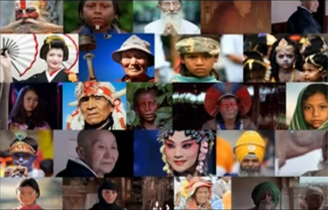37 C/5 Approved – Programme and Budget
Main Line of Action 1: Mobilizing future-oriented research, knowledge and policy-making to support social transformations, social inclusion and intercultural dialogue
03009 Providing an effective response to social transformation challenges is a longstanding need and commitment of the international community requiring comprehensive socially inclusive and evidence-based public policies. A key role in this respect is provided by the Management of Social Transformations (MOST) Programme and its Intergovernmental Council (IGC MOST) with social inclusion as one of its central priorities. The MOST mechanisms will be geared towards stimulating on the one hand policy-oriented research and on the other streamlining a coherent and structured research-policy dialogue among a vast array of actors and stakeholders at national and international levels.
03010 Through an interdisciplinary implementation of the five functions of the Organization, MP III will address social transformations, intercultural dialogue and foresight across three strategic axes: (1) to strengthen the links between research and policy-making in relation to social transformations and cultural pluralism; (2) to lead focused initiatives in education, culture, the sciences, communication and information as well as intercultural dialogue that support the emergence of more inclusive societies; (3) to consolidate UNESCO’s function as a global laboratory of ideas and foresight and anticipation, to design innovative proposals for the longer-term development of public policies, bridging research, policy and practice
03011 To this end, MP III will be leveraging expertise across the Organization thereby enabling transversal and interdisciplinary collaboration. At the same time, it will offer substantive support, technical advice and backstopping in its areas of competence. Likewise, it will function as a catalyst for an enhanced cooperation with outside partners. In particular MP III will reinforce synergies with the UN system and other key stakeholders at the global, regional and national levels, capitalizing on existing partnerships and collaborative arrangements. Partnerships with renowned research institutions, thinktanks and national research institutes and the global network of UNESCO Chairs are instrumental for building requisite institutional capacities. In a nutshell, MP III will also act as an observatory of social and cultural transformations, a future-oriented laboratory of ideas to inform policies, a platform for intercultural dialogue and human rights-based strategies, a reference and catalyst for intersectoral, inter-agency and international cooperation as well as for capacity-building. The visibility offered by this focused approach will also offer a coherent tool to raise extrabudgetary funds, which shall provide additional funding to expand the outreach of UNESCO.
03012 MP III will continue to be entrusted with the secretariat of the MOST Programme, through which UNESCO will interact with social science communities nationally, regionally and globally. It will provide an intergovernmental forum for discussion of evidence-based and action-oriented public policies for social inclusion and sustainable development, and ensure that the social and human sciences play their full role in sustainability science or integrated science for sustainable development. To achieve this, particular efforts will be made to influence the international sustainable development agenda, notably through effective dissemination of scientific outputs and the results of dialoguebased foresight exercises, and to cast interdisciplinary scientific understanding of sustainability as a comprehensive ethical, social and environmental challenge.
03013 Launched under the umbrella of MOST in 2012-2013, the new programme on social inclusion for developing institutional capacities at national and municipal levels to assess, compare and reform national policy and regulatory frameworks with a view to increasing their inclusiveness and social sustainability will be continued. Activities in this connection will be informed by the findings of UN human rights monitoring mechanisms, and notably those of the Universal Periodic Review (UPR), bringing to the forefront patterns of exclusion and gender inequalities, as well as barriers and structural causes that impede the social inclusion and/or non-discrimination of most vulnerable groups and their universal access to quality services. Within this context, the Organization will: a) promote and adapt methodologies for assessing the level of inclusiveness and social sustainability of public policies and regulatory frameworks; b) conduct a coordinated and participatory national policy analysis and reviews, identification of policy good practices and gaps, and formulation of country specific options (including costing) for policy reform; c) provide technical support and policy advice to governments and dutybearers for the operationalization of the policy scenarios, and the design of socially inclusive policies and planning processes that acknowledge and take into consideration the roles and contributions of women and men. Philosophy and capacities for critical thinking will be promoted by the involvement of the academic community and international networks and by allowing spaces of exchanges, including events to celebrate World Philosophy Day.
03014 MP III will also be shaped by a renewed commitment to intercultural dialogue in the best tradition of the Organization’s humanist mandate. UNESCO was designated as lead United Nations agency for the implementation of the “culture of peace”, defined as consisting “of values, attitudes and behaviours that reflect and inspire social interaction and sharing based on the principles of freedom, justice and democracy, all human rights, tolerance and solidarity, that reject violence and endeavour to prevent conflicts by tackling their root causes to solve problems through dialogue and negotiation and that guarantee the full exercise of all rights and the means to participate fully in the development process of their society” (A/RES/52/13). In the framework of UNESCO’s recent designation as lead agency for the International Decade for the Rapprochement of Cultures, 2013-2022 (A/RES/67/104), UNESCO will continue to ensure global leadership and coordination to underscore the virtuous cycle between intercultural dialogue and cultural diversity as cornerstone of political agendas to ensure peaceful social transformations conducive to harmonious societies.
Address: 81, Laiguangying West Road, Chaoyang District, Beijing, China
Zip Code: 100021
Tel: 86-10-64966526
Fax: 86-10-64969281
E-mail: administration@crihap.cn
NEWSLETTER
Leave us your e-mail address, we'll let you know about current events.


